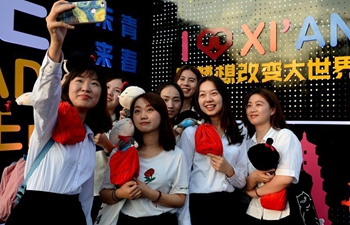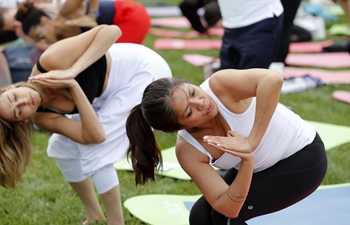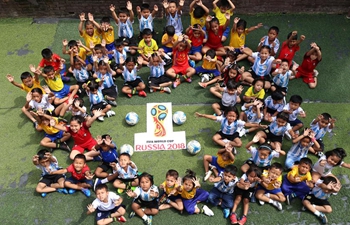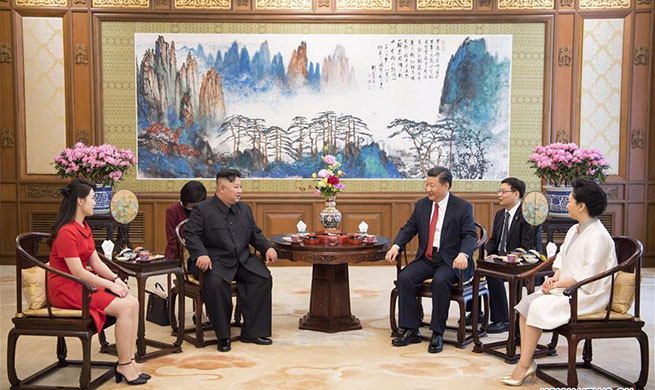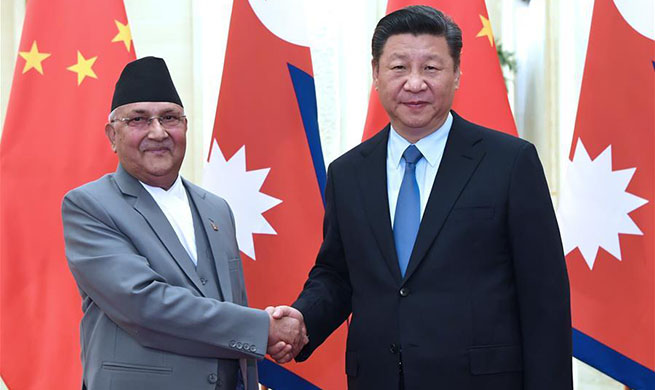by Xinhua writers Zhu Dongyang, Liu Chen
WASHINGTON, June 20 (Xinhua) -- U.S. experts and media have recently criticized Washington's decision to pull out of the United Nations Human Rights Council (UNHRC), saying it marks Washington's latest strike on the global multilateral framework and spirit.
Established in 2006 to replace the UN Human Rights Commission, the 47-member council has the power to launch investigations into allegations of human rights abuses. After years of declining to join the council under George W. Bush, former U.S. President Barack Obama decided that his nation would become a member of it so as to better influence the council from the inside.
The withdrawal was the latest effort by the Trump administration to "pull away from international organizations and agreements that it finds objectionable," said a New York Times article published on Tuesday.
Earlier, the Trump administration quit multilateral institutions and agreements, such as the Iran nuclear deal, the Paris climate agreement and the United Nations Educational, Scientific and Cultural Organization (UNESCO).
Citing the U.S. pullout of multiple treaties and imposition of tariffs, the report said that "(U.S. President Donald) Trump has turned decades of American foreign policy on its head by attacking or undermining much of the rules-based order that the United States established after World War II."
"Previous administrations viewed the interlocking network of alliances, trade rules and international organizations as beneficial to the United States," it said.
"The Trump administration has made clear that it will not countenance the level of criticism and what it describes as slanted resolutions by the Human Rights Council."
Monday's decision, marking the first time a member has voluntarily left the council, will nevertheless add to concerns that the United States is, under Trump, "retreating" from its position on international human rights, said an article published on Tuesday on the website of POLITICO.
The article added that "it wasn't immediately clear whether the U.S. would cooperate with the council in any form or would continue to at least observe its sessions, and neither Haley nor Pompeo mentioned the UN criticism of Trump's family separation practice as being a factor," referring to U.S. Permanent Representative to the United Nations Nikki Haley and Secretary of State Mike Pompeo.
U.S. Senator Chris Coons was quoted by the article as saying that "the UN Human Rights Council isn't perfect, but withdrawing the United States from this important body ... also makes it harder for the United States to prevent the Human Rights Council from taking positions we oppose."
Haley on Tuesday blasted the group for failing to conduct reforms Washington had requested and for its allegedly "disproportionate focus and unending hostility toward Israel."
Jessica Trisko Darden, a professor at American University's School of International Service, told Xinhua that "no one who has been paying attention to U.S. ambassador to the UN, Nikki Haley, and her reformist agenda would be surprised by this move."
She added that the council, in the eyes of the Trump administration, "has demonstrated a consistent bias against Israel and has recently publicly condemned the Trump administration's current border enforcement policy."
In terms of the Israel issue, John Sifton, an advocacy director at Human Rights Watch, was quoted by U.S. media as saying that "all this administration seems to care about when it comes to the council is defending Israel."
"If the Trump administration's complaint is that the council is biased and flawed, they've just made it more so," he said.
The U.S. decision has been widely seen as a gesture to challenge the UN attitude towards U.S. domestic issues.
On Monday, Zeid Ra'ad al-Hussein, the UN high commissioner for human rights, urged an end to the forced separation of children from their migrant parents under the Trump administration, saying such a practice was "unconscionable."
Trump, facing domestic and international backlash, signed an executive order Wednesday to end the administration's controversial practice of separating migrant children from parents crossing the U.S. border illegally.
In a joint letter to Pompeo also published on Tuesday, 12 human rights organizations said that the withdrawal from the UN group "undermines American interests."
"We the undersigned are deeply disappointed with the Administration's decision," it read. "This decision is counterproductive to American national security and foreign policy interests."
"Without strategic U.S. engagement at the Council as a member, the U.S. loses a platform to influence the course of human rights globally," the letter read.
"We respectfully urge the Department of State to review this decision, to seek reelection to the UN Human Rights Council in 2019, and to continue to advance reforms in the Human Rights Council."
"Actions taken by the UNHRC, the only global intergovernmental human rights body, carry special weight. Whereas countries can deflect criticism of their human rights record by another government as being politicized, it is harder to dismiss the voting outcomes of a globally representative rights body," argued an article of the Council on Foreign Relations, a U.S.-based think tank.
(Matthew Rusling from Washington also contributed to the report.)




